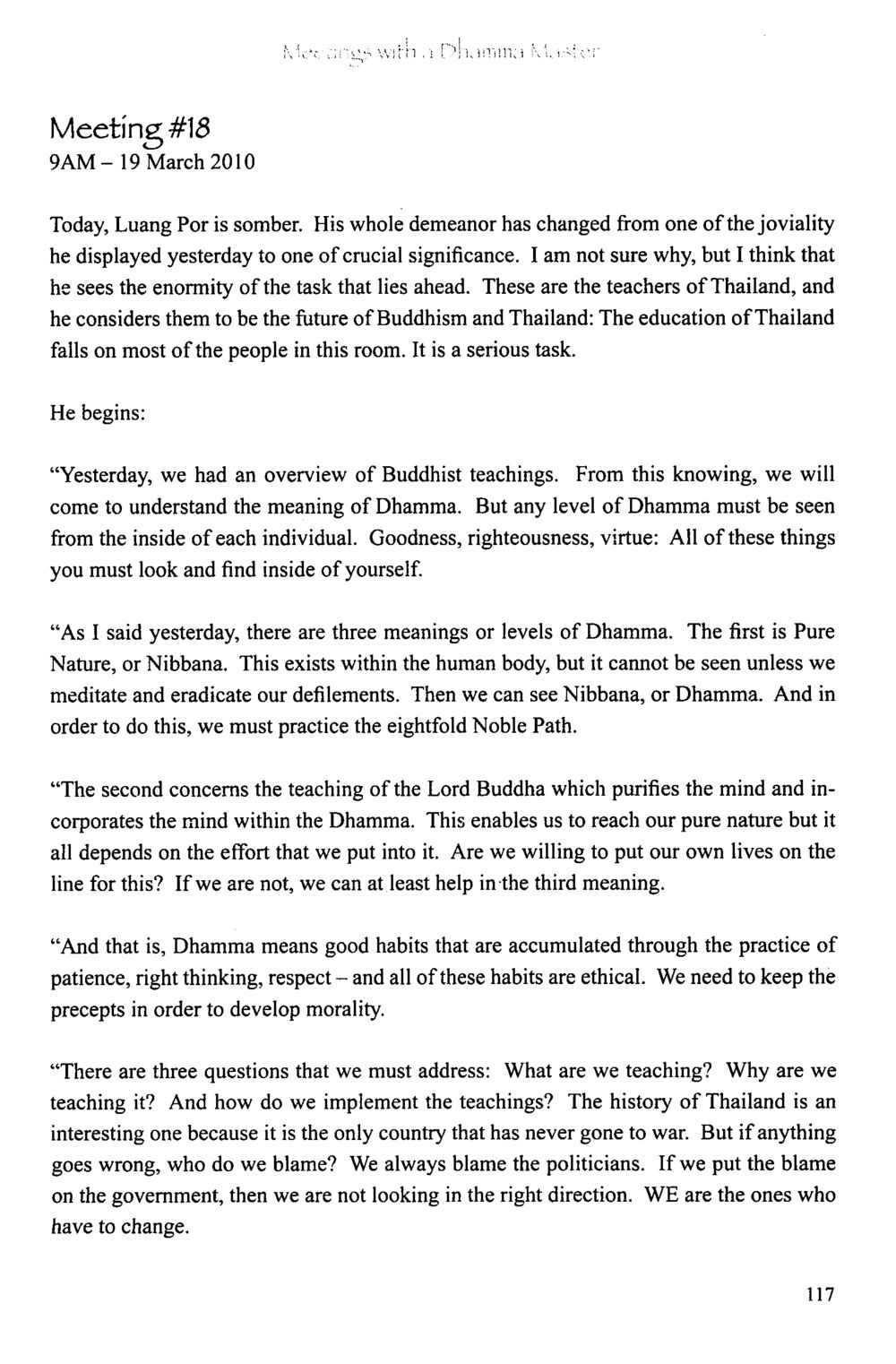The Future of Buddhism and Education in Thailand : หน้า 118/164
The Meeting with a Dhamma Master : หน้า 118/164 A pivotal meeting discussing the role of Buddhism in Thai education and the importance of self-examination for teachers.
0 ครั้ง

สรุปเนื้อหา
In this significant meeting, Luang Por emphasizes the vital role of teachers in shaping the future of Buddhism and education in Thailand. He discusses the three meanings of Dhamma, highlighting the need for self-examination through meditation to understand one's pure nature, known as Nibbana. The second meaning reflects the teachings of the Buddha to purify the mind, while the third focuses on developing ethical habits through patience and right thinking. He stresses that the responsibility for change lies within individuals and not just with political figures, urging participants to address fundamental questions about their teaching practices. For more insights, visit dmc.tv.
หัวข้อประเด็น
-The role of teachers in Buddhism
-The three meanings of Dhamma
-The importance of self-examination
-Developing ethical habits
-Responsibility for change in education
ข้อความต้นฉบับในหน้า
หน้าหนังสือทั้งหมด




































































































































































